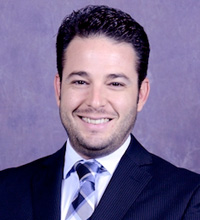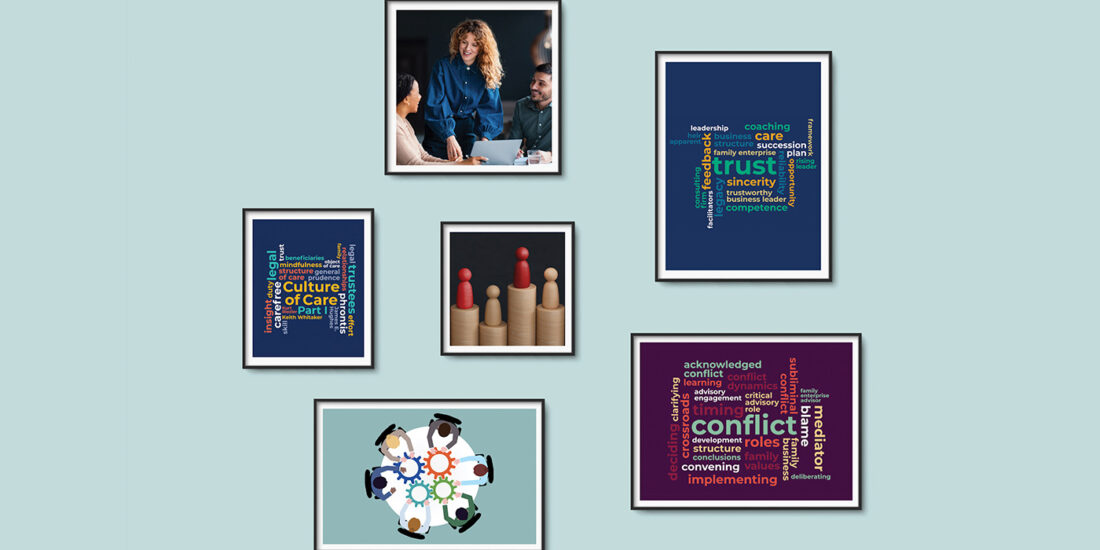On the Origin of a Successful Successor
Where do credible, capable, and confident successors come from? In short, they evolve through a series of incremental developments over time. Evolution can be defined as a process by which entities grow or develop from simple to more complex forms. From a family business perspective, the continuing personal and professional development of the next generation of family business leaders [Next Gens] can also be seen as an evolutionary process. To succeed, young Next Gens must develop from child, to potential successor, and eventually to leader of the family business.
Despite its importance, how this development occurs within family businesses is often poorly understood. To date, scholars and practitioners alike have placed a great deal of emphasis on the professional development of Next Gens via formalized education and work experiences, both inside and outside the family business. Although a focus on this aspect of development is important, it does not highlight the underlying (and perhaps more important) aspect of personal development via social and emotional experiences that promote individual growth. In addition to the tangible “hard” skills, successor attributes related to greater emotional and social intelligence increase the likelihood of a successful succession because they help to establish positive family dynamics and ultimately a shared vision between generations.
Early intervention is important
During the course of growth from adolescence into adulthood, it is commonly understood that most people will naturally develop their emotional and social competencies. However, young Next Gens often face unique challenges that might hinder such development.
For example, many grow up with an inherent understanding that they will eventually take over the family business. While this can represent a great opportunity, such expectations can also dampen young Next Gens’ motivation to explore and establish who they are as individuals – encouraging complacency and stunting their personal growth. Another developmental threat stems from the altruistic tendencies often exhibited by families in business. While altruism can promote the well-being of family members, Next Gens who receive unearned benefits or are unaccountable for their actions can develop a skewed sense of right and wrong. Coupled with the work–life overlap that frequently occurs in family businesses, these and other moral hazards can ultimately lead to conflict, indecisiveness, apathy and problem behaviors in general.
The importance of early intervention comes from the understanding that family business succession is a dynamic process rather than a single event. A succession event is typically viewed as a passing of the baton, when ownership, control and/or wealth is handed-off from one generation to the next. However, when viewed as a process, it becomes apparent that succession encompasses multiple stages across a much longer time period. As the hand-off represents the final stages of this process, a model succession typically begins with preparing, nurturing and developing Next Gens. In addition to their professional experiences, the personal training that young successors undergo to acquire knowledge, develop leadership capabilities, and achieve credibility and legitimacy is vital in these early stages of succession.
Methods for advisors
Based on the findings of a recent study in which my colleagues and I interviewed college-aged Next Gens and their parents about their individual personal development experiences (Barbera, Bernhard, Nacht, & McCann, 2015)[1], the following experiential techniques (summarized directly from our study) are established emotional and social development methods that advisors can use to intervene in the early stages of succession.
1. Self-reflection – By encouraging a reflection on behavioral patterns related to their family and themselves, advisors can help young Next Gens develop a greater awareness of self. Such growth was demonstrated by our study’s Next Gens who reflected on personal goals, related challenges, potential solutions and the associated pitfalls with inaction. This technique also involves:
- Understanding one’s genealogy
- Identifying one’s values, beliefs, and personal career strategies.
- Making sense of the many roles in the family and business.
- Realizing the constructive value of feedback.
2. Normalizing – Next Gen participants who realized that they are not alone, but rather part of a larger group were able to further self-reflect and became more self-aware. Advisors can help by encouraging Next Gens to observe, understand and learn from others in similar situations within their peer group. This technique also involves:
- Receiving insights from peers and mentors into typical challenges in family businesses.
- Building the trust and requisite vulnerability required for open and honest discussions and creating a strong sense of togetherness.
- Identifying one’s strengths, weaknesses and relationships with peers and society in general.
3. Understanding emotions – By consciously analyzing one’s emotions, young Next Gens can begin to realize and have greater control over their feelings, including how to best act on them. Advisors can play an important role by acknowledging that a balance between emotional and intellectual functioning is key to resolving the emotional conflicts often experienced by Next Gens. This technique also involves:
- A recognition of one’s own emotions and their effects on others.
- Studying the family group’s emotional currents and power relationships.
- Identifying emotional responses to and from the business and family systems.
4. Enhancing communication – Given the apparent difficulty surrounding communication in family business systems, advisors can provide opportunities for young Next Gens to openly discuss controversial topics including succession and familial conflict. Such communication stimulated the development of social awareness and relationship management competencies in our study’s subjects. This technique also involves:
- Forthright and meaningful communication between Next Gens and their parents.
- Overcoming communication barriers and facilitating conversation.
- Openly discuss and question family business decisions.
Concluding remarks
Successful successors are nurtured and developed, not born. The emotional and social developments that occur in the early stages of the succession process can alter the evolutionary path that Next Gens will take in their individual growth, which in turn can lead to either a successful or problematic succession. After prolonged exposure to the above mentioned personal development methods, our study’s young Next Gens demonstrated improvements in:
- Understanding their attachment to the family business.
- Managing the expectations of their parents.
- Developing incumbent-successor trust.
- Perceiving past, present, and future aspects of the family business.
- Making informed career decisions.
These methods therefore have the potential to develop Next Gens who are better prepared to make a thoughtful, positive contribution to their family’s business. Formal education and business training play an important role in this development, but the latent, usually informal, personal development aspects of successor training are all too often the missing link.
About the contributor
 Francesco Barbera is senior lecturer and co-director of the Family Business Education and Research Group in the Entrepreneurship, Commercialisation & Innovation Centre at the University of Adelaide. He is the recipient of the 2014 Outstanding Reviewer Award for FBR and is a faculty member for GEN 501: Myths, Realities, and Trends in the Field of Family Enterprise. Frank can be reached at francesco.barbera@adelaide.edu.au.
Francesco Barbera is senior lecturer and co-director of the Family Business Education and Research Group in the Entrepreneurship, Commercialisation & Innovation Centre at the University of Adelaide. He is the recipient of the 2014 Outstanding Reviewer Award for FBR and is a faculty member for GEN 501: Myths, Realities, and Trends in the Field of Family Enterprise. Frank can be reached at francesco.barbera@adelaide.edu.au.
[1] Barbera, F., Bernhard, F., Nacht, J., & McCann, G. 2015. The Relevance of a Whole-Person Learning Approach to Family Business Education: Concepts, Evidence, and Implications. Academy of Management Learning & Education, 14(3): 322-346.




